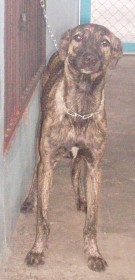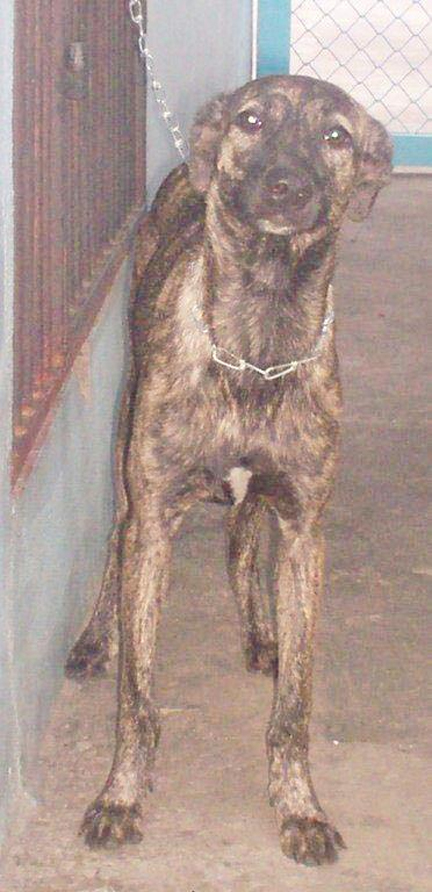Now what is an ‘old dog’? I don’t want to get philosophical and equate the question with the one usually directed to humans (How old is old?) but we can use a rule of thumb and say that one dog year corresponds with seven human years.

3 dog months = 5 human years
6 dog months = 10 human years
12 dog months = 15 human years
2 dog years = 21 human years
4 dog years = 32 human years
6 dog years = 40 human years
8 dog years = 48 human years
10 dog years = 56 human years
14 dog years = 72 human years
18 dog years = 91 human years
21 dog years = 106 human years
So keep in mind: Your pooch gets to be a senior citizen long before you do? (PS Cats age at about the same animal-human ratio as dogs).
Dogs in Guyana may get ‘older’ more quickly than their counterparts up North. Our climate, the lack of care and veterinary intervention, diseases, etc, all will play a role in hastening Rover’s demise in Guyana. Yet, we have several regular visitors to the clinic which are well over 10 years of age.

You see how I am trying to be ‘politically correct’ in my terminology even when relating to animals. I am no longer calling them ‘old’ dogs. I am using the word ‘elderly.’ Just as in the case of humans, one should no longer say ‘old people’ rather the term is the elderly,’ or better yet, ‘senior citizens.’ I am told that in due course the word gurus will improve even on that description. Anyway, let’s talk about the aging process and the care associated therewith.
Now, if I knew the actual cause of aging, I’d receive the Nobel Prize in Physiology and/or Medicine. We do know that aging is associated with a progressive and irreparable impairment of the functions of the body’s cells. Cells make up tissues, and tissues make up organs. The exact cause for the malfunction, over time, in the cellular chemistry and physics, is unknown. But you can be sure that many scientists around the world are studying this phenomenon. Of course, the studies are being carried out on animals, so we vets will probably be the first to know about any new breakthroughs; and we will be the first to implement the mechanisms which will ensure the longevity of our domesticated wards.
Factors influencing aging
Notwithstanding the lack of scientific knowledge, it is clear even now that certain elements impact upon the longevity of an animal. Foremost among these are:
(1) Genetics
(2) Nutrition
(3) Diseases
(4) Environment
(5) Tender Loving Care (TLC)
Let’s briefly discuss some of these factors:
Genetics
Large dogs (eg German Shepherds, St Bernards, Great Danes, etc) seem to age quicker than smaller dogs (eg Dachshunds, Terriers, Spaniels, etc). Even in the best kept households, the statistics show that dogs of the larger breeds reach an ‘old age’ at around 10 years, while the toy breeds exhibit old age symptoms at a later age, 14-16 years. And, for sure, we know that certain families (strains) within a breed live longer than other dogs of the same breed.
Nutrition
Some smart person has said that you are what you eat. Well, that wisdom is doubly true in dogdom. I am convinced that we curtail our pets lives by incorrect nutrition, whether by overfeeding or underfeeding. In our ‘love’ for our dogs we give them sweet treats, spiced food – plenty and often. On the other hand, nutritional neglect results in ‘Rover’ being lucky if he gets three reasonably good meals a week. Neither of these two variations augur well for a long and healthy life for your pet. I should mention in passing that I once had a professor who advised that dogs should remain without food for one whole day every week. He maintained that the feeding regime should try as much as possible to imitate the feeding patterns of domesticated dogs’ cousins (eg wolves, foxes, etc) in the wild who do not get food every day, yet fare well.
Diseases
Well, obviously diseases like distempter, parvovirus, leptospirosis and hepatitis can wipe out entire litters and kennels, if no preventive measures (eg vaccinations) are taken. Dogs, whose vaccination status and anti-parasitic schedules are kept up to date, would surely live longer than those which are left unprotected.
Environment
Environment can mean many things, but I am referring here primarily to climate. We do live a few degrees away from the equator and, on the coast, below sea level. Consequently, the animals (like humans) live constantly under severe heat and humidity stress. If it is a long-haired dog, the discomfort is even more. The long hot dry season and the extensive rainy seasons with concomitant high humidity can actually weaken the animal. Of course, under such climatic conditions, many specific diseases proliferate.
TLC
The scientists have also determined that the tender loving care a dog receives within the household throughout its life is of great importance to its longevity. Again, statistics show that well-cared for pets succumb to fewer ailments during the course of their lives. The opposite is also true. If the pet is neglected, it is more likely to contract maladies which can accelerate the aging process.
We will continue with this theme next week.
Please implement disease preventative measures (vaccinations, routine dewormings, monthly anti-heartworm medication, etc) and adopt-a-pet from the GSPCA’s Animal Clinic and Shelter at Robb Street and Orange Walk, if you have the wherewithal to care well for the animals. Do not stray your unwanted pets, take them to the GSPCA’s Clinic and Shelter instead. If you do not wish your pet to have puppies or kittens, you may exploit the GSPCA’s free spay and neutering programme. If you see anyone being cruel to an animal, or if you need any technical information, please get in touch with the Clinic and Shelter by calling 226-4237.

